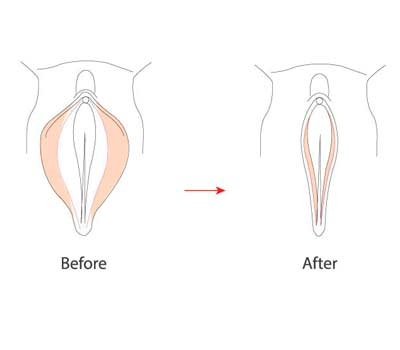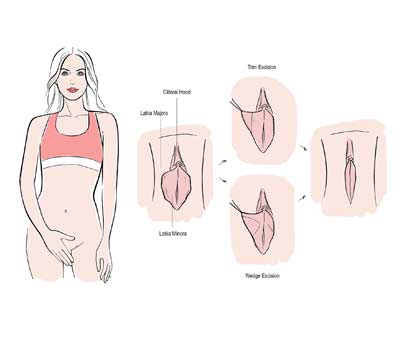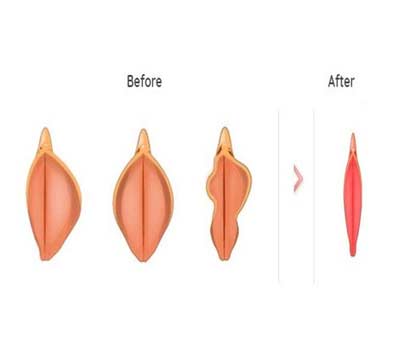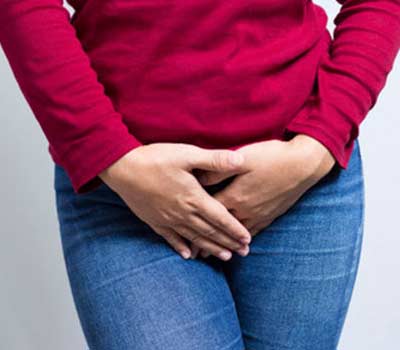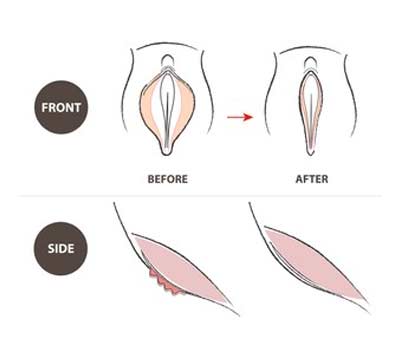 Labiaplasty is an intimate surgery that aims to reduce the size of the labia minora. Surgery is performed mainly in cases of aesthetic discomfort, difficulty in maintaining hygiene or even pain during sexual intercourse. Intimate surgery, when indicated, can also change the size and shape of the labia majora.
Labiaplasty is an intimate surgery that aims to reduce the size of the labia minora. Surgery is performed mainly in cases of aesthetic discomfort, difficulty in maintaining hygiene or even pain during sexual intercourse. Intimate surgery, when indicated, can also change the size and shape of the labia majora.
Above all, a very important recommendation for those who want to undergo labiaplasty is to look for a trusted doctor and preferably, a professional who is an expert in the area. In addition to doing all the necessary tests to check that everything is ok with your health, you need to certify that the operation will not pose any risk.
How is labiaplasty performed?
The procedure can be done using a scalpel or laser. It is a minor surgery, with local anesthesia with sedation or epidural, in which the patient is discharged on the same day and can return to work two days later.
Usually, this surgery is sought to decrease the size of the labia minora which is projected out of the labia majora. But, there are also cases in which a woman is uncomfortable with the appearance of the labia majora, when she considers that there is excess skin or sagging. Therefore, in this case, the surgeon can make a graft using the patient’s own fat in the region, which causes the previously flaccid skin to stretch. There is also the possibility of surgically removing excess skin.
Benefits
Labiaplasty offers several benefits to patients:
- Improved self-esteem and self-confidence;
- Eliminates pain during sexual intercourse, caused by the size of the labia minora;
- Improves hygiene, especially during the menstrual period;
- There is less risk of infection as it has decreased the accumulation of secretion.
Frequently asked questions
- Why do changes occur in women’s private parts?
Reasons that can cause changes are: • Age; • Menopause; • Sudden weight changes with accumulation and loss of fat in the intimate region; • Pregnancy; • Genetics. - Can any woman do?
The answer is yes! Any woman who is uncomfortable with the size of her labia minora can seek expert advice to correct the imperfections. However, it is worth mentioning that the patient must be in good health to undergo the procedure. - How much skin is removed?
The doctor decides the amount to be withdrawn. It is important to say that it cannot be reduced too much, because the labia minora play an important role in protecting the entrance to the vagina. Decreasing too much can leave the area very vulnerable to bacteria and cause infections to develop. Excessive withdrawal can result in the change of lubrication in the region. - How is the scar?
Each patient reacts differently in the healing process. But usually the labiaplasty scar is very discreet. - Is the postoperative period painful?
No, on the contrary, he is very calm and practically painless. What remains is just a slight swelling in the region.
Pre-treatment
Intimate plastic surgery does not have precise contraindications, however, as with any surgery, it requires care. People with chronic illnesses, diabetes, high blood pressure, or heart failure should avoid certain surgical procedures.
When dealing with patients with active infection at the site or discharge, treatment should be done before performing surgery. As for smokers, there is a special recommendation. Abstinence for two or three months before surgery. Women with hypertension, diabetes, or asthma should be evaluated by their doctors about the risks of having the surgery.
After treatment
Some precautions are important for a good recovery:
- Make compresses with ice on the spot, several times a day, especially in the first two days;
- The use of daily protectors is also recommended in the first week;
- Clean the area with mild soap;
- Do not wear tight clothing and tight jeans for approximately 30 days;
- Sexual intercourse is only allowed one month after the surgery;
- Physical activities are allowed after 15 days of the procedure;
- Sea and pool should be avoided for the first 20 days.


